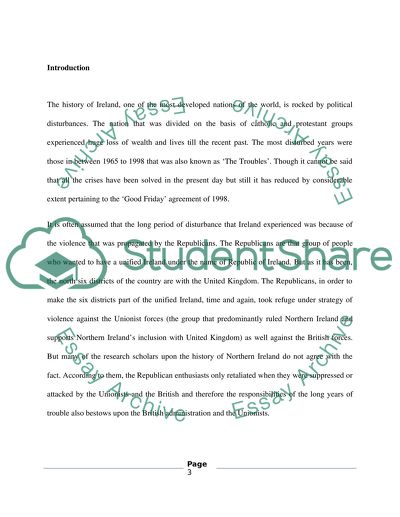Cite this document
(“In the context of the period 1886 to 1998, how valid is the view that Essay”, n.d.)
In the context of the period 1886 to 1998, how valid is the view that Essay. Retrieved from https://studentshare.org/miscellaneous/1564664-in-the-context-of-the-period-1886-to-1998-how-valid-is-the-view-that-republican-violence-was-the-greatest-barrier-to-achieving-a-solution-to-the-troubles-of-1965-to-1998
In the context of the period 1886 to 1998, how valid is the view that Essay. Retrieved from https://studentshare.org/miscellaneous/1564664-in-the-context-of-the-period-1886-to-1998-how-valid-is-the-view-that-republican-violence-was-the-greatest-barrier-to-achieving-a-solution-to-the-troubles-of-1965-to-1998
(In the Context of the Period 1886 to 1998, How Valid Is the View That Essay)
In the Context of the Period 1886 to 1998, How Valid Is the View That Essay. https://studentshare.org/miscellaneous/1564664-in-the-context-of-the-period-1886-to-1998-how-valid-is-the-view-that-republican-violence-was-the-greatest-barrier-to-achieving-a-solution-to-the-troubles-of-1965-to-1998.
In the Context of the Period 1886 to 1998, How Valid Is the View That Essay. https://studentshare.org/miscellaneous/1564664-in-the-context-of-the-period-1886-to-1998-how-valid-is-the-view-that-republican-violence-was-the-greatest-barrier-to-achieving-a-solution-to-the-troubles-of-1965-to-1998.
“In the Context of the Period 1886 to 1998, How Valid Is the View That Essay”, n.d. https://studentshare.org/miscellaneous/1564664-in-the-context-of-the-period-1886-to-1998-how-valid-is-the-view-that-republican-violence-was-the-greatest-barrier-to-achieving-a-solution-to-the-troubles-of-1965-to-1998.


